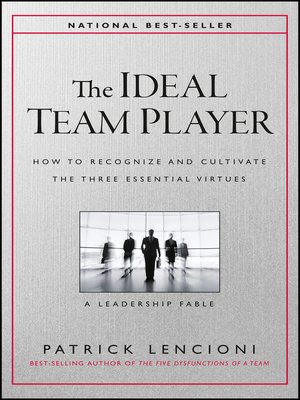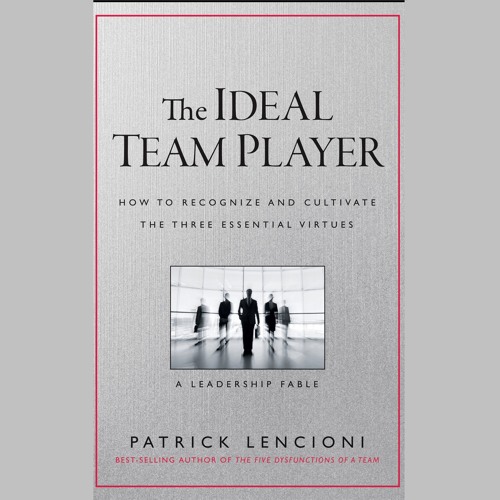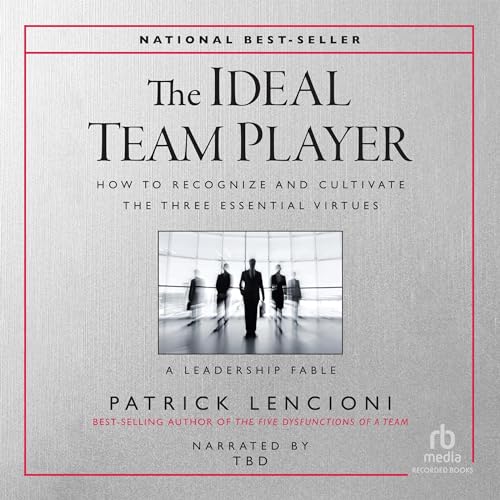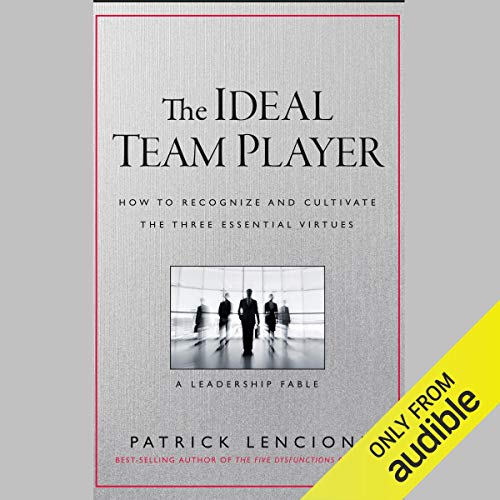Patrick M. Lencioni’s “The Ideal Team Player” audiobook explores the essential traits of an effective team member. It emphasizes being humble, hungry, and smart.
Lencioni’s audiobook delves into the qualities that make an exceptional team player, focusing on three crucial attributes: humility, hunger, and people smarts. Humble team players prioritize the team’s success over personal glory. Hungry individuals are driven, proactive, and always looking for ways to improve.
Smart team players possess strong interpersonal skills, allowing them to navigate social dynamics effectively. These attributes are vital for building cohesive and high-performing teams. The audiobook combines practical advice with engaging storytelling, making it a valuable resource for leaders and team members aiming to foster a collaborative and productive work environment.
Key Concepts From ‘the Ideal Team Player’
Patrick M. Lencioni’s audiobook ‘The Ideal Team Player’ offers profound insights into building effective teams. The book introduces a model centered on three essential virtues that every team player should possess. These virtues are simple yet powerful guidelines to foster teamwork and achieve collective success.
The Three Virtues
Lencioni identifies three key virtues: humble, hungry, and smart. These virtues form the cornerstone of a perfect team player.
| Virtue | Description |
|---|---|
| Humble | A humble person prioritizes the team’s success over personal recognition. They are quick to share credit and emphasize team over self. |
| Hungry | A hungry individual is always looking to do more. They are self-motivated, diligent, and constantly striving for improvement. |
| Smart | A smart team player understands people. They have strong interpersonal skills and can navigate team dynamics effectively. |
Applying The Model
To apply Lencioni’s model, teams can follow a structured approach:
- Assess current team members based on the three virtues.
- Identify areas where team members need development.
- Provide targeted training and development.
- Integrate the virtues into hiring practices.
- Encourage team members to embody these virtues daily.
Teams can use specific tools to embed these virtues into their culture:
- Regular feedback sessions.
- Recognition programs for exemplary behavior.
- Workshops focused on teamwork and communication.
By embracing these virtues, teams can achieve unparalleled success and harmony. The model is simple yet effective, making it easy to implement and sustain.

Credit: www.overdrive.com
Insights On Team Dynamics
Patrick M. Lencioni’s audiobook, The Ideal Team Player, offers valuable insights on building and maintaining successful teams. Understanding team dynamics is crucial for any organization aiming for excellence. This section explores key takeaways from the audiobook, focusing on creating cohesive teams and avoiding common pitfalls.
Building Cohesive Teams
One of the core lessons from the audiobook is the importance of building cohesive teams. A cohesive team works well together and achieves its goals effectively.
- Trust: The foundation of any strong team. Members should trust each other.
- Conflict: Healthy conflict leads to better solutions. Team members must engage openly.
- Commitment: Every team member should commit to decisions and plans.
- Accountability: Hold each other accountable for performance and behavior.
- Results: Focus on collective outcomes, not individual achievements.
Avoiding Common Pitfalls
To maintain a strong team, avoid common pitfalls that can harm team dynamics. Lencioni identifies some key areas to watch out for:
- Absence of Trust: Without trust, teams cannot function effectively.
- Fear of Conflict: Avoiding conflict can lead to poor decision-making.
- Lack of Commitment: Teams must commit to actions and plans.
- Avoidance of Accountability: Teams fail without holding members accountable.
- Inattention to Results: Focusing on individual success over team success harms the team.
Understanding these pitfalls helps in creating strategies to avoid them. This ensures a healthier team dynamic and improved performance.
Practical Applications And Examples
Patrick M. Lencioni’s audiobook, The Ideal Team Player, offers invaluable insights. It teaches how to identify and cultivate ideal team players. Here, we explore practical applications and examples.
In The Workplace
Employers can use Lencioni’s principles to build strong teams. By focusing on humility, hunger, and people smarts, leaders can create a productive environment. These three traits form the foundation of an ideal team player.
Consider a company implementing these traits in their hiring process:
| Trait | Interview Question | Desired Response |
|---|---|---|
| Humility | Describe a time you worked as part of a team. | Shows appreciation for team efforts. |
| Hunger | How do you stay motivated in your work? | Expresses a strong work ethic and drive. |
| People Smarts | How do you handle conflicts in a team? | Demonstrates empathy and communication skills. |
This approach helps employers find candidates who excel in team settings. The ideal team player is not just skilled but also fits well within the team culture.
Beyond Business
Lencioni’s principles are not limited to the workplace. They can be applied in various aspects of life. For example, in sports teams, coaches can build cohesive units by fostering humility, hunger, and people smarts.
In family settings, parents can teach these traits to their children. This prepares them for future team-based environments. Consider these everyday applications:
- Humility: Encourage children to share and work together on tasks.
- Hunger: Set goals and celebrate achievements, no matter how small.
- People Smarts: Teach kids to resolve conflicts peacefully.
Community groups also benefit from these principles. Leaders can promote collaboration by highlighting the importance of these traits. This leads to more effective and harmonious group dynamics.
By applying Lencioni’s concepts, individuals and groups can achieve greater success. The principles of humility, hunger, and people smarts are universally valuable.

Credit: soundcloud.com

Credit: www.audible.com
Conclusion
Patrick M. Lencioni’s “The Ideal Team Player” audiobook is a valuable resource for building effective teams. Its insights on teamwork, humility, and collaboration are essential. Listening to this audiobook can transform your approach to team dynamics. Enhance your team’s success with the principles outlined by Lencioni.
Elevate your leadership skills today.



